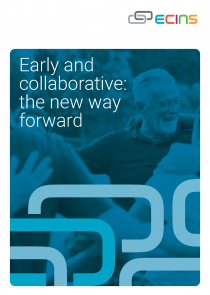In June 2017 Devon and Cornwall Police introduced a new initiative aimed at challenging, and changing, the behaviour of first time offenders with the aim of preventing and diverting people away from crime. Victims are able to give their views on whether the offender is offered the deferred charge scheme or a more traditional disposal, which is taken into consideration by the office making the decision.
The Pathfinder Deferred Charge Scheme is an out of court disposal for people coming into the criminal justice process who would otherwise receive a Police caution. If the offender agrees to be referred to the Pathfinder their caution is suspended pending successful completion of the scheme.
Pathfinder is a programme which aims to reduce the number of victims of crime by reducing reoffending, which will also make all our communities safer places to live and work. People are often motivated to commit crime due to underlying issues in their lives – these could include drug or alcohol misuse, mental and physical health issues, housing or homelessness, or problems to do with money or relationships.
Pathfinder seeks to identify and tackle the root causes of offending by providing brief interventions and support, often at the first contact with the criminal justice system. A referral to the scheme will only be made once the victim has been contacted, and there is a strong focus on restorative justice – a process which aims to repair the harm caused by crime.
Cati Jervis, Pathfinder Keyworker at Devon and Cornwall Police said “A decision will be taken about a person’s suitability for the deferred charge scheme, but only after consultation with the victim. If the offender accepts the offer we will aim to meet with them within 24 hours who will draw up a contract which will be binding for four months.
The purpose of offering the Pathfinder service to an individual is to support people to address the underlying issues which had contributed to their offending behaviour. We work with a number of agencies and voluntary sector partners including mental health, social services and a local restorative justice partner to look at what has happened in their life, assess their needs and support them with a range of interventions to reduce the chance of re-offending in the future.”
The Pathfinder contract requires the offender to commit to:
No reoffending during the course of the contract;
Undergo restorative justice with any victim;
Agree to receive support from partner agencies to address existing needs;
Undertake voluntary work within the community.
Compliance with the contract means there will be no criminal conviction (though it may still appear on an enhanced DBS check and details of the offence will remain on the Police systems). Any offender who does not agree to enter the Pathfinder scheme or fails to adhere to the terms of the contract will receive the caution which had been suspended against them.
Cati said “We tailor the four month contract to the person. For example, if that person is in employment and has a family they may already have their own objectives of what they need to achieve at the beginning of the contract and we then schedule appointments and communicate regularly throughout the process. We always meet face to face halfway through the contract and keep in touch during the process. Other contact may be by phone and letter. Some people are already known to agencies and are already receiving support such as mental health or housing support and in these cases we often attend their team meetings through the course of the contract.
“As part of their contract the offenders are required to complete a voluntary or community based activity and we work with many voluntary organisations to find opportunities for clients to develop skills and pay something back to the community. Partner agencies such as Devon Time help us source relevant local opportunities. The Devon Time coordinator uses ECINS so we can share the person’s profile and to record information such as whether they have been referred for dishonesty offences. This is relevant for the ECINS Coordinator to know to ensure safeguarding of the staff”.
How ECINS helps
E-CINS is used to record all of the notes and discussions between the Pathfinder Keyworker and the client. This information is then used to make referrals and share information with the supporting agencies such as Make Amends, the Restorative Justice commissioned service by the Devon and Cornwall PCC. The notes inform the agencies of all that has happened so far, risk factors and any other relevant information they need to know before meeting with the client for the first time.
Starting a Case
The Case Profiles on ECINS have a built-in counter which enables us to see how long someone has been on the contract for and how long is left until it ends. Cati said “It’s really useful to be able to see at a glance what stage of the process an offender is at”.
Assessment Tool
“We use the ECINS Assessment Tool to carry out an initial full assessment of the client, looking at their life circumstances and support needs. This gives us an in-depth knowledge of the type of agencies we need to involve to provide the right type of interventions. We then utilise ECINS’ in-built Wheel Assessment which touches on each of the critical pathways we’re involved with. It gives us a snapshot of all the interventions made and how they are rated in terms of success. We carry out this assessment a number of times throughout the 4-month process to check progress and a final assessment at the end of the contract period indicates how effective the interventions have been and measures outcomes. The Wheel Assessment is a great tool to use, it is so easy to complete and it acts as the focus of conversation in client meetings, talking through their issues and concerns.
Actions and Tasks
“When you are responsible for 10 or 15 cases it is really useful to make use of the Actions and Tasks functionality on ECINS. We set actions for ourselves for future dates, it really helps us to keep track of what needs to be done and when. Action reminders pop up at the relevant times which I can share with other team members. The task function allows us to allocate suitable tasks to partner agencies to complete. It’s useful to be able to track progress set completion dates during the 4-month period”.
Documents
“Working with a large number of external agencies it is so important to make sure we have the relevant permissions and consent from everyone involved. The documents tab is a great place to hold the Information Sharing Agreement which is a simple signed form that gives consent from the client that they agree to their information being shared with other agencies. For a lot of agencies that is all they need to share information with us. We also hold all other relevant documents under this tab; we scan everything and upload it which saves us having to photocopy or email information to partner agencies as it is all there for them to see in one place.
Outcomes
“The Make Amends team have access to ECINS and they can upload outcomes following their RJ interventions. I have one case at the moment where the Make Amends Team are finding it difficult to make contact with an offender but I am able to contact him quite easily. We are getting different sides to the client’s story as to what is happening but because we share the same system we have live information from all the agencies involved in their Case which gives us as Keyworkers access to the most accurate up-to-date information before we visit a client.”
Devon and Cornwall are the second force to introduce the Pathfinder Deferred Charges Scheme. It has been very successful in Durham where it is called Operation Checkpoint. Devon and Cornwall will evaluate the learning to see if the intended outcomes are achieved and report to the PCC.


